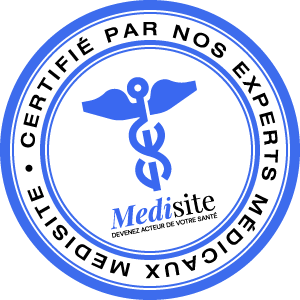
- 1 - Le café donne de l'énergie
- 2 - Le café prévient l’insuffisance rénale aiguë
- 3 - Le café est mauvais pour le cœur.
- 4 - Le café protège votre foie
- 5 - Le café fait maigrir
- 6 - Le café contient plus d’antioxydants que le thé
- 7 - Le café améliore la mémoire
- 8 - Le café rend dépendant
- 9 - Le café soulage le mal de tête
- 10 - Le café facilite la digestion
- 11 - Le café empêche de dormir
- 12 - Le café favorise l’hypertension
- 13 - Le café favorise l’ostéoporose
- 14 - Le café protège du diabète
- 15 - Le café protège du cancer
- 16 - Le café prévient la maladie de Parkinson
- 17 - Le café améliore les performances physiques
- 18 - La consommation de café freine le vieillissement des muscles
Le café favorise l’hypertension
 © Istock
© Istock
Faux Même si la caféine présente dans le café peut augmenter temporairement la pression artérielle, ce n’est pas pour autant qu’elle favorise l’hypertension. "Une forte consommation de caféine, c’est-à-dire au-delà de cinq tasses par jour, augmente la pression artérielle, mais de manière négligeable. Il n’y a donc aucune raison d’interdire sa consommation. On peut très bien boire du café tous les jours en quantité raisonnable (3 à 4 tasses maximum) sans qu’il y ait de risque pour la tension artérielle" confirme le Dr Bruno Schnebert, cardiologue. Certaines études font malgré tout état d'un léger surrisque associé à une forte consommation de café. D'ailleurs, cette boisson est déconseillée chez les personnes atteintes d'hypertension.
Afssa
- Institut français de la nutrition
https://medicalxpress.com/news/2022-06-coffee-consumption-link-acute-kidney.html
https://linkinghub.elsevier.com/retrieve/pii/S2468024922013699
- Société française d’Antioxydants
- Syndicat français du café
- Les aliments bons pour la santé, ed.Sélection du Reader’s Digest, 2009
- Intakes of antioxidants in coffee, wine, and vegetables are correlated with plasma carotenoids in humans, Svilaas A, J Nutr 2004
- Dose-response study of caffeine effects on cerebral functional activity with a specific focus on dependence. Nehlig A, Boyet S. Brain Res 2000
- Effects of Coffee on the Gastro-Intestinal Tract: A Narrative Review and Literature Update, Nutrients, 17 janvier 2022.
- Neurochemical and behavioural effects of caffeine measured by in vivo dopamine and acetylcholine microdialysis and spatial delayed alternation task. Abstracts of the 19th International Conference on Coffee Science, Trieste, Italy 2001, Di Chiara G, Acquas E, Tanda G et al.
- Caffeine Reverses Cognitive Impairment and Decreases Brain Amyloid-? Levels in Aged Alzheimer’s Disease Mice, Journal of Alzheimer’s Disease Volume 17, Number 3, July 2009, G.W. Arendash, T. Mori, C. Cao, M. Mamcarz, M. Runfeldt, A. Dickson, K. Rezai-Zadeh, J. Tan, B.A. Citron, X. Lin, V. Echeverria, H. Potter.
- Boekema PJ. Effect of coffee on motor and sensory function of proximal stomach. Dig Dis Sci 2001 ; 46 (5) : 945-51.
- Hernan M.A., et al., Annals of Neurology (2002)
- JAMA 2000 May 24-31 ;283(20):2674-9 2
- Neurology. 2000 Nov
- Kathryn M. Wilson. Coffee Consumption Associated with Reduced Risk of Advanced Prostate Cancer. American Association for Cancer Research. December 7, 2009
- Bone statuts among postmenauposal women with different habitual caffeine intakes : a longitudinal investigation. Lloyd T. J Am Coll Nut 2000.
- Pereira MA : Coffee Consumption and Risk of Type 2 Diabetes Mellitus. Arch Intern Med. 2006 ;166:1311-1316.
- Hiroyasu Iso,The Relationship between Green Tea and Total Caffeine Intake and Risk for Self-Reported Type 2 Diabetes among Japanese Adults, Annals of Internal Medicine, April 2006.
- Ann Intern Med, janvier 2004 ; vol. 140 : p. 1-8. Ann Surg, janvier 2004
- Caffeine and risk of atrial fibrillation or flutter : the Danish diet, cancer and health study. Frost L and Vestergaard P, Am. J. Clin. Nutr. 2005 ; 81 : 578-582.
Eat it, not that ! : https://www.eatthis.com/news-coffee-muscles-study/
- Effects of caffeine on neuromuscular fatigue and performance during high-intensity cycling exercise in moderate hypoxia, European journal of applier physiology, 2017.
Voir plus










